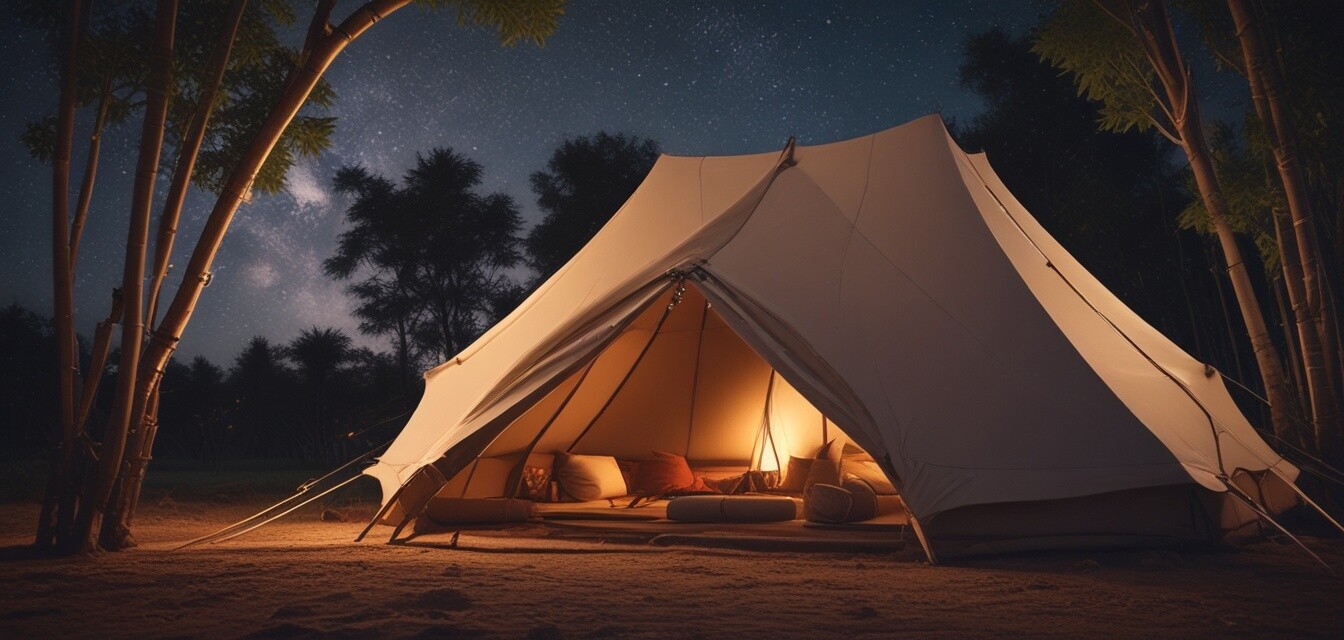
Bamboo vs. Synthetic: Which tent is better?
Key Takeaways
- Bamboo tents offer unique sustainability features but may require more maintenance.
- Synthetic tents are lightweight and typically more durable in harsh weather conditions.
- Comfort, weight, and environmental impact should all be considered when choosing a tent.
- Evaluate your specific needs for outdoor adventures, including emergency situations that require quick setup and durability.
Choosing the right tent is crucial for outdoor enthusiasts, especially when planning excursions that might require emergency preparedness. Two popular materials used for tents are bamboo and synthetic fabrics. This article will compare both options, focusing on their durability, safety, and overall performance during dire situations. Let's dive into the distinctions and advantages of each type of tent.
Understanding Bamboo Tents
Bamboo tents are crafted from a natural and sustainable resource, making them an eco-friendly choice for campers and adventurers alike. They have unique characteristics that can benefit outdoor experiences.
Benefits of Bamboo Tents
- Sustainability: Bamboo is a renewable resource that grows quickly and requires less water than traditional materials.
- Breathability: Bamboo fabric allows for enhanced airflow, reducing condensation inside the tent.
- Natural Aesthetic: The rustic look of bamboo can complement natural settings, providing a cozy ambiance.
Challenges with Bamboo Tents
- Maintenance: Bamboo can be prone to mold and requires careful cleaning after use.
- Weight: Bamboo tents may be heavier than their synthetic counterparts, making transportation more challenging.
- Cost: They can be more expensive due to the natural materials used in their construction.
Exploring Synthetic Tents
Synthetic tents are typically made from materials like polyester and nylon, which offer specific advantages for outdoor use. These fabrics are engineered for various conditions and are popular among campers.
Benefits of Synthetic Tents
- Durability: Synthetic materials are often more resistant to wear and tear, prolonging the tent's lifespan.
- Weather Resistance: These tents usually perform better in extreme weather, offering superior waterproofing and wind resistance.
- Lightweight: Synthetic tents are generally lighter, making them easier to carry during backpacking trips.
Challenges with Synthetic Tents
- Environmental Impact: The production of synthetic materials can contribute to pollution and waste.
- Condensation: Some synthetic tents may trap moisture, leading to a damp interior if not properly ventilated.
Comparison Table: Bamboo vs. Synthetic Tents
| Feature | Bamboo Tents | Synthetic Tents |
|---|---|---|
| Sustainability | High | Moderate |
| Weight | Heavy | Lightweight |
| Weather Resistance | Moderate | High |
| Durability | Moderate | High |
| Cost | Higher | Lower |
Final Thoughts
When it comes to selecting the ideal tent for your outdoor adventures, both bamboo and synthetic options have their pros and cons. The decision largely depends on your specific needs, preferences, and environmental consciousness. For a cozy, rustic experience in nature, bamboo tents might be your go-to. However, for those who prioritize durability and lightweight options, synthetic tents are undeniably advantageous.
Where to Learn More
For a deeper understanding of outdoor gear, check out our other resources on:
Tips for Selecting the Right Tent
Beginner's Section
- Consider your camping style: Are you a minimalist who needs a lightweight tent?
- Evaluate the weather conditions throughout the camping season.
- Test the tent setup process to ensure it suits you in emergency scenarios.
Pros of Bamboo Tents
- Eco-friendly and sustainable option
- Enhanced breathability
- Unique aesthetic appeal
Cons of Bamboo Tents
- Heavier than synthetic tents
- Higher maintenance requirements
- Generally costlier
Pros of Synthetic Tents
- Highly durable and resistant to the elements
- Lightweight and portable
- Available in various styles for different needs
Cons of Synthetic Tents
- Potentially harmful environmental impact
- Can trap heat and moisture